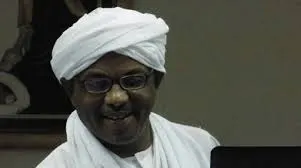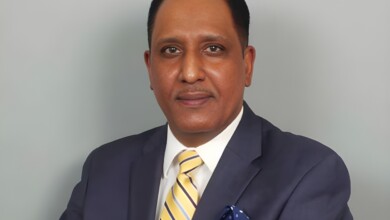How Islamists Turned Sudanese Diplomacy into a Platform for Hostility and Isolation
Dr. Abdel Moneim Hematt

When the Islamists came to power in Sudan in (1989), the country witnessed radical transformations in its foreign relations and diplomatic orientations. The new regime chose to adopt policies based on hostility towards others, and began attacking neighboring countries as well as other Arab and African countries.
A prominent example of these adopted policies is the tense relations that arose with Saudi Arabia and Uganda, where the rulers of the kingdom were subjected to an inappropriate description in the Sudanese media, especially through the morning radio program presented by Younis Mahmoud. It was clear from the beginning that the State was often run through the radio, where hostility was directed blatantly at some countries according to the whims of the ruling regime.
Over time, this hostile policy wasn’t stopped, but rather developed into the Sudanese Ministry of Foreign Affairs becoming a platform used by the Muslim Brotherhood to export their extremist ideas. Instead of the Ministry of Foreign Affairs being a bridge to strengthen relations and cooperation, it became a means of exporting violence and conflict, which led to the severing of diplomatic relations with many countries. The result was that Sudan became a country under siege for many years due to wrongful internal policies that destroyed Sudan’s long diplomatic legacy that was based on moderation and wisdom.
Sudan must regain its natural place in the international arena, and put forth efforts to build relations based on cooperation and respect, apart from extremism and ideological agendas. With the Islamists seizing power, a clear contradiction emerged between the foreign policies pursued and Sudan’s national interests.
The government adopted hostile positions against regional and international countries, which led to Sudan being isolated from its natural environment and entering into diplomatic isolation that negatively affected its regional and global standing. These contradictions were evident in the ill-considered alliances that were made with political regimes that were also isolated internationally, which exacerbated Sudan’s isolation and further deteriorated relations with the international community.
In addition, the extremist foreign policies led to the imposition of stifling economic sanctions on Sudan by the international community. These sanctions weren’t limited to freezing Sudanese assets only, but also included vital sectors such as trade and foreign investment, which exacerbated the economic crisis in the country.
In light of this situation, Sudan became an unattractive country for international investment or cooperation, which deepened the economic and humanitarian crisis in the country.
The crisis wasn’t limited to the aforementioned repercussions, as the Sudanese Ministry of Foreign Affairs turned into an ideological tool at the hands of Islamists, used to promote their ideology on the international scene. Instead of working to improve Sudan’s image and promote its national interests, Sudanese embassies and representations abroad became a front for promoting extremist ideology. This shift has made Sudanese diplomacy a tool for promoting political and economic isolation, rather than promoting international communication and cooperation.
Comparing Sudan’s diplomatic status before and after the Islamists came to power, we can clearly see how Sudan enjoyed a respected position in the international community, and was known for its moderate policies and commitment to neutrality in regional conflicts. This diplomatic legacy, built over decades, was completely undermined by the Islamists, who adopted hostility and isolation as an approach to their diplomacy.
The hardline foreign policies led to the imposition of stifling economic sanctions on Sudan by the international community after the outbreak of the war on April 15th. Tensions increased with a number of countries, as the Sudanese government launched media campaigns against countries such as Kenya, United Arab Emirates and the Kingdom of Saudi Arabia.
These campaigns weren’t limited to passing criticism, but were clear attempts at political revenge and unjustified diplomatic escalation. With the Islamists back in control of the Ministry of Foreign Affairs, hostility towards others began to escalate, and Sudanese embassies became centers for coordinating suspicious activities, such as transferring funds to companies and individuals with the aim of supporting the Muslim Brotherhood organization, which is a clear circumvention of the banking systems in a number of countries.
Sudan is in dire need of a comprehensive reform in its foreign policies. The Sudanese people must realize that foreign relations ought to be based on mutual respect and common interests, not hostility and isolation. This will only be achieved by removing the Islamists from power, because their continued control over Sudanese diplomacy means more isolation and destruction.
There is an urgent need to rebuild Sudanese diplomacy and reorient it towards national interests. The Ministry of Foreign Affairs must regain its role as a bridge for communication and cooperation with other countries, away from the ideology that has led Sudan into endless conflicts. This challenge requires new leadership and a vision based on openness and dialogue.
With the Islamists seizing power, a clear contradiction has emerged between the foreign policies pursued and Sudan’s national interests, and lessons can be drawn from the experiences of other countries that have succeeded in rebuilding their diplomacy after the dark periods they went through. Countries such as Rwanda and Kenya, which have witnessed positive transformations after periods of internal conflict and international isolation, have been able to reformulate their foreign policies to become more balanced and realistic. These countries have become models for overcoming crises and building diplomatic relations based on common interests and international cooperation.
We must realize that real reform of Sudanese diplomacy won’t happen without a firm and clear popular position. The Sudanese people must demand balanced foreign policies and work to distance diplomacy from the influence of Islamists who have turned it into a tool to serve their own interests. Sudanese diplomacy must return to its former glory, to be a means of building bridges and promoting peace, not spreading conflicts and isolation.
The recent incident with Sudanese Ambassador in UAE, Abdelrahman Sharfi is a clear example of the state of chaos that Sudanese diplomacy is experiencing. This incident reveals the immoral intentions of manipulating foreign policies and making professional figures into victims of the narrow interests of the Islamic Movement.
Sudan must regain its natural position in the international arena, and work on building relations based on cooperation and respect, apart from extremism and ideological agendas.
“Al-Arab”




